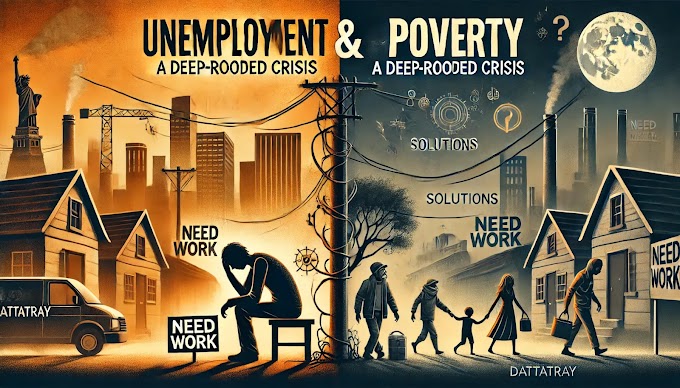What is Content Writing
Content writers create written content to engage and inform readers, as well as to promote products or services. They research and write about a wide range of topics and must be able to write in a clear, concise, and engaging style.
Content writers typically work with editors, SEO specialists, and other professionals to ensure that their content is of high quality and meets the needs of the target audience. They may also work with designers to create visual content, such as infographics and videos.
Content writing is an important part of digital marketing and is essential for businesses and organizations looking to reach and engage their audience online. It requires strong writing skills, as well as an understanding of SEO, social media, and online marketing strategies.
Content Writing Scope -
Content writing is a broad field that encompasses the creation of written content for a variety of purposes. Some common types of content writing include:
- Blog posts: Blog posts are typically shorter pieces of content that are published on a regular basis. They can be informative, educational, or entertaining, and are often used to engage readers and build an audience.
- Web content: Web content refers to the written content that appears on websites. This can include homepages, product pages, service pages, and more. Web content should be well-written, informative, and tailored to the target audience.
- Marketing copy: Marketing copy is written content that is used to promote products, services, or brands. It is typically persuasive in nature and aims to convince the reader to take a specific action, such as making a purchase or signing up for a newsletter.
- Social media posts: Social media posts are short pieces of written content that are published on social media platforms. They can be used to engage with followers, promote products or services, or simply share interesting or relevant content.
- Email newsletters: Email newsletters are regular emails that are sent to subscribers and contain a variety of content, including articles, updates, and promotional offers.
- Ebooks: Ebooks are longer pieces of written content that are typically published in a digital format and sold online. They can be educational, informative, or entertaining, and are often used as a way to monetize a blog or website.
- Technical writing: Technical writing refers to the creation of written content that explains technical or complex information in a clear and concise manner. It is often used in fields such as software development, engineering, and medicine.
There is a wide range of opportunities for content writers, and the scope of work can vary greatly depending on the specific type of content being created and the intended audience.
Content Writing Benefits -
There are many benefits to content writing, both for businesses and for writers. Some of the benefits of content writing include:
- Increased Traffic and Visibility: Quality content can help attract visitors to a website and improve its search engine rankings. This can lead to increased traffic and visibility for the website.
- Engaged Audience: Well-written content can engage and inform readers, encouraging them to return to the website and share the content with others.
- Improved Brand Image: Quality content can help improve the reputation and image of a brand. It can establish the brand as an authority in its field and help build trust with customers.
- Increased Sales: Effective content can help promote products and services, leading to increased sales and revenue.
- Professional Development: Content writing can be a rewarding career for those with strong writing skills. It provides the opportunity to learn about a wide range of topics and to develop expertise in a particular field.
- Flexibility: Content writing can be done from anywhere, making it a flexible career option for those who prefer to work remotely.
Overall, content writing offers many benefits for businesses and individuals. It can help attract and engage an audience, improve a brand's image, and drive sales and revenue.
How to Write Content -
Writing quality content requires a combination of strong writing skills and a clear understanding of the target audience and the purpose of the content. Here are some steps to follow when writing content:
- Define the Purpose: Determine the purpose of the content and the goals you want to achieve. Is it to inform, educate, entertain, or persuade? Who is the target audience?
- Research: Research the topic thoroughly and gather relevant information from reliable sources. Take notes and organize the information in a logical manner.
- Create an Outline: Use the research to create an outline of the content, including the main points and supporting details. This will help to keep the content organized and focused.
- Write the First Draft: Begin writing the first draft, using the outline as a guide. Don't worry about grammar or spelling at this stage, just focus on getting the ideas down on paper.
- Edit and Proofread: Review the content for errors in spelling, grammar, and punctuation. Make any necessary revisions to improve the clarity and flow of the content.
- Review and Finalize: Review the content for overall clarity and effectiveness. Make any final revisions and ensure that the content meets the requirements of the target audience and the purpose of the content.
Writing quality content requires time and effort, but following these steps can help to ensure that the content is well-written and effective.
How to Write An Effective Content -
Writing effective content requires a combination of strong writing skills, a clear understanding of the target audience, and a focus on the purpose of the content. Here are some tips for writing effective content:
- Know Your Audience: Understand who the content is for and tailor the language and tone to suit their needs and interests.
- Use a Clear and Concise Writing Style: Keep the language simple and avoid using jargon or technical terms that may be unfamiliar to the reader.
- Use Headlines and Subheadings: Use descriptive headlines and subheadings to break up the content and make it easier to scan and read.
- Use Images and Videos: Use images and videos to break up the text and make the content more engaging and visually appealing.
- Use Short Paragraphs and Sentences: Use short paragraphs and sentences to keep the content easy to read and understand.
- Use Lists: Use bullet points or numbered lists to make the content more organized and easier to read.
- Use Action Words: Use action words to encourage the reader to take a specific action, such as signing up for a newsletter or making a purchase.
By following these tips, you can create effective content that engages and informs the reader and meets the goals of the content.
Hope you have found this useful ( Have A Great Day :)
. . .
"It is really important to start taking actions on your thoughts" - Thought
.gif)
.png)
.gif)
.gif)
.gif)






.png)



.png)


0 Comments